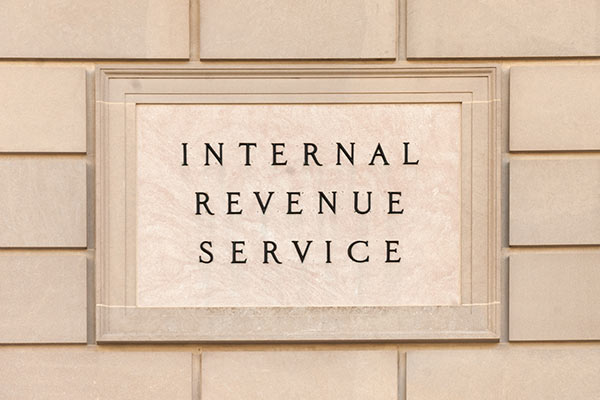IRS REMAINS “SWAMPED”
IRS REMAINS “SWAMPED”
Still Working on 2019 Tax Returns
In the January issue of The Pearson Perspective we addressed the lament voiced by many 2019 taxpayers … “Where’s My Refund?” Taxpayer frustrations are largely due to pandemic related moves by the IRS to defer tax deadlines as well as changes in penalties and interest for late-filers. These attempts to reduce taxpayer stress became subject to the wrath of “unintended consequences”.
The COVID-19 pandemic upended the tax season last year with continuing after-effects today for millions of people. The Internal Revenue Service reported in mid-February that it had yet to process 6.7 million individual income tax returns for 2019.
With the backlog of 2019 tax filings, there is considerable pressure to extend the 2021 tax filing season until July 15 as the pandemic continues to impose a “titanic strain on the agency” … as expressed by House Ways and Means Committee chairman Richard E. Neal, D-Massachusetts, and Oversight Subcommittee chairman Bill Pascrell, Jr., D-New Jersey. Likewise, recent requests have been filed by AICPA and National Association of Tax Professionals that the IRS extend the 2021 income tax filing season.
Last year the tax-filing deadline was revised to July 15 from the usual April 15 date. So far this year, the IRS says there are no plans to extend tax-filing deadline beyond April 15.
We’ll keep you up to date as changes may occur.
HOW WILL THE AMERICAN RESCUE PLAN HELP YOU?”
Working Americans Will Receive Direct Payments
Both the House and Senate passed the American Rescue Plan and presented it to President Biden for his signature of approval. He responded promptly, and the new law is now effective.
Reportedly, there is a high level of cooperation between the Treasury and IRS to ensure payments are issued beginning this month. Additionally, the IRS and Bureau of Fiscal Service are acknowledging “lessons learned” from delays in previous rounds of pandemic related payments to increase the number of households that will
receive electronic payments. That will accelerate receipt of checks by taxpayers rather than awaiting delivery via USPS.
What Might This Mean for a Typical American Family
Here’s a quick rundown on what to expect about direct payments under the American Rescue Plan.
As a frame of reference, take a look at this example of what direct payments under the American Rescue Plan can mean for a typical family of four, with kids in school aged 8 and 5 and parents with a combined income of $75,000 a year.
- $5,600 in direct payments … $1,400 for each parent and child.
- The expanded Child Tax Credit will add $2,600 more in tax credits than before.
- In this case, $8,200 more in the pockets of this family as they weather the pandemic storm.
Additionally, the bill has significant financial provisions to reopen schools safely, accelerate availability of coronavirus vaccinations and help those who have lost their jobs due to C-19 shutdowns.
What to Expect in Receiving Your Payment
- If you have already filed your income tax return for 2020, the IRS will use that information to determine eligibility and size of payments.
- If you have not yet filed for 2020, the IRS will review records from 2019 to determine eligibility and size of payment.
- The IRS will send payments electronically to taxpayers for which it has direct deposit or bank account information.
- Paper checks or debit cards will be forwarded via USPS to taxpayers for which the IRS has no bank account information.
PPP LOAN FORGIVENESS FOR VIRGINIA SMALL BUSINESSES
Conformity, Reconciliation and Tax Relief
On Monday, March 15, 2021, Governor Ralph Northam signed legislation to conform the Virginia tax code to the U.S. Internal Revenue Code from December 31, 2019, to December 31, 2020. The key provision relating to small businesses and PPP tax treatment is …Virginia will allow a deduction of up to $100,000 for tax year 2020.
Until this clarification, small business owners were faced with the prospect of paying state income tax on a portion of PPP loans. This was triggered by the initial reaction of Virginia lawmakers that loan proceeds used for valid business expenses were not deductible in determining state income taxes.
The agency strongly urges against calling the IRS. “Due to high call volumes, the IRS suggests waiting to contact the agency about any unprocessed paper payments still pending,” said the IRS. “See www.irs.gov/payments for options to make payments other than by mail.”
In an attempt at fairness … not an excuse … the deferments in tax deadlines along with changes in penalties and interest for late-filers has put a tremendous strain on IRS resources. Procedures that have been in place and functioning are now either scrapped or subject to major revisions.
Couple that with the major pressures on IT to deliver software updates to accommodate the revised dates and details for taxpayer compliance. And then there is the human resource-based issues that require substantial re-training.
Conformity, Reconciliation & Tax Relief
In the context of the debate over PPP tax treatment by the state of Virginia, conformity and reconciliation refer to maintaining the usual posture by Virginia … tax treatment of businesses that mirror federal rules. That deliberation came to a head with the passage by the General Assembly of HB 1935 and SB 1146… both now signed into law by Governor Northam.
At the risk of being repetitious …the key provision relating to small businesses and PPP tax treatment is …
Virginia will allow a deduction of up to $100,000 for tax year 2020.


